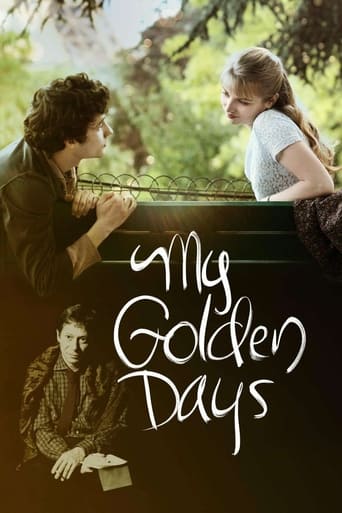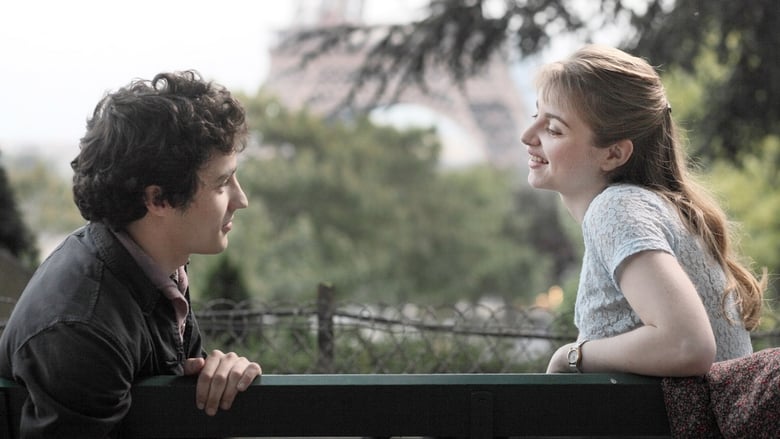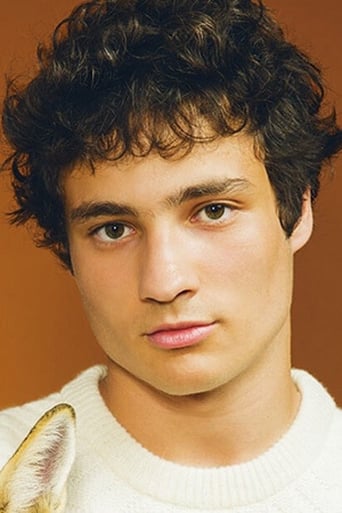

My Golden Days (2016)
Paul is preparing to leave Tajikistan, while thinking back on his adolescent years. His childhood, his mother's madness, the parties, the trip to the USSR where he lost his virginity, the friend who betrayed him and the love of his life.
Watch Trailer
Cast


Reviews
"My Golden Days" came out in 2015 as a late-breaking prequel to Desplechin's mid-90s classic "My Sex Life... or How I Got Into an Argument," which may be the best film since "Lucky Jim" about life on the lower rungs of the academic ladder. Once again, Mathieu Amalric plays Paul Dédalus, now returning to France after a decade or so doing ethnographic fieldwork in the former Soviet Union; a farewell tryst with his gorgeous Russian girlfriend (Dinara Drukarova) unleashes a cascade of memories: In a brief prologue, 10-year-old Paul flees his mentally unstable mother and takes refuge with his great-aunt and her Russian lover. Next, he recounts a daring high-school exploit to an urbane French spook, who wonders why he (and his passport) have doppelgangers in Australia (long story!), and in the longest, most significant episode, he relives an intense love affair with a classmate of his younger sister's, Esther, a clever, soulful, sexy, needy, neurotic young woman (she grows up to be Emmanuelle Devos in "My Sex Life"; here she's played brilliantly by Lou Roy-Lecollinet).Trigger warning: Paul and Esther communicate in improvised love lyrics (as befits two alumni of the Lycée Baudelaire); Esther's pouty histrionics may evoke bittersweet memories of post-adolescent romance, or may just seem too precious to be endured. Your call! This final episode starts to drag a bit as Paul soldiers on as an unfunded grad student in Paris, sleeping in hostels, couch surfing and ménage-à-trois-ing it with a congenial older couple while Esther mopes her way through "a stupid college course" and cheats on him repeatedly. Luckily, Desplechin props up his sometimes rambling storyline with ingenious staging and cinematography: When Paul first approaches Esther, he's surrounded by a windblown swirl of fallen leaves, which is echoed in the final scene as he strides into what looks like a blizzard of torn-out pages from a book (they're both "feuilles" in French, I guess; does it mean that this chapter in his life is coming to an end?); hard to put into words but it's a lovely effect. Finally I should mention the first-rate period soundtrack: The Specials, De La Soul, "Atomic Dog" and Run-D.M.C. It's a remarkable film, though, again, a certain tolerance for post-Truffaut coming-of-age shenanigans is required.
Arnaud Desplechin first introduced his protagonists, the young Paul Dédalus and his girlfriend Esther, way back in 1996 in his highly successful "My Sex Life... or How I Got into an Argument." Now he brings Dedalus (Mathieu Amalric) back again as an adult, just having returned from his work as an anthropologist in Tajikistan. The film is divided into three segments, with an adult Paul reminiscing first about his childhood, chronicling an abusive father and depressed mother, who eventually commits suicide. There's not much to the first segment but the second proves to be the most interesting. After being detained by government security forces, Paul explains why another Paul Dedalus, with origins in Russia, has turned up with his passport.Paul is subjected to an interrogation by a security agent which allows him to explain how he gave up his passport while on a high school trip to Russia so that a Jewish teenager could use it to escape to Israel during the time of anti-Semitic persecutions of Jews in the Soviet Union during the late 80s.But My Golden Days turns from being a suspense thriller to a more conventional coming of age story when the young college student Paul (played convincingly by Quentin Dolmaire), falls for Esther, a high school student who is the same age as Paul's sister, Delphine.After having seen the film a few weeks ago, I had trouble recalling details about Paul and Esther's romance-- so I turned to a few critic's reviews to refresh my memory. Short on plot description, some reviews are content to provide a few amorphous descriptions of the nature of the relationship.Kenneth Turan, writing in the L.A. Times, briefly explains, "We see them playing out the drama of attraction and insecurity, inexorably drawn to each other but having to face the problems different personalities invariably bring to relationships."Peter Travers in Rolling Stone feels there's something quite deep about what happens between Paul and Esther: "Memory gives the movie a formal frame, but Desplechin laces the past with such raw emotion that nothing is hemmed in. Love hurts, that's for sure. And Desplechin makes sure we feel it."Stephanie Zacharek writing in Time Magazine provides a few more details about Paul and Esther's burgeoning romance: "It takes a long time, in this eternal nighttime, for Paul and Esther to connect. Their flirtations are stilted at first, especially since Paul feels threatened by her many suitors, and she doesn't need to lie about their numbers: Young men cluster to her, as Marlene Dietrich sang, like moths around a flame. But ultimately, it's Paul she chooses, and their liaison starts out sweet before wending its way into l'amour fou territory."Frederic and Mary Ann Brussat writing in Spirituality & Practice believe Desplechin is on to something in what they see as a nuanced portrait of the protagonist's motives: "He reveals the delights and the dangers in our idealization of the beloved, our dizzying capacities of infatuation, the primal longings for each other, and the pain and pleasure which this state of romantic arousal engenders. The Brussats perhaps provide the best summary of the third segment. They note that Paul puts Esther on a "pedestal" but still leaves her behind when he goes to Paris for school. There is a sub-plot emphasizing Paul's competence in his chosen field when he convinces a noted anthropology professor to accept him as a student.Later Paul and Esther share intimacies through a series of love letters but their separation leads to the deterioration of their relationship. As the Brussats put it, Esther "begins to fall apart emotionally and he is at a loss for what to do in response." Finally Paul seeks solace with an older woman and never seems to get over Esther's decision to go out with his best friend, Kovalki, with whom Paul meets up at film's end, and is unable to contain his anger towards. Ultimately Desplechin's portrait of a failed adolescent relationship suffers from a lack of gravitas or high stakes. I would contrast this film with Bergman's "Summer With Monika," where a femme fatale destroys the relationship an earnest young man develops with a young woman who is not what she initially appears to be.Esther, on the other hand, is simply a spoiled neurotic and Paul's inability to shed all the misplaced anger from such an earlier time in his development marks Desplechin's narrative as decidedly inconsequential despite all his "innovative" split-screens and entertaining 80s soundtrack.Francophiles will undoubtedly dig all the "passion," but this dyed-in-the-wool American views this more as a generic tale of adolescent loves lost.
Starting with a sequence, if I removed it would not happen anything, since it would not interfere anything in the film, for my taste, it stays with the part of the history of this personage less interests me. The film is a simple love story of two kids.I do not like the character of the Lou Roy-Lecollinet or, rather, its evolution. I do not understand why she draws her so submissive and dependent. Of course, she does it very well. He is also very well.The grief of the film is that there comes a time when I do not know if you are telling me a story cinematically or you are telling me with voice-over and actors looking at camera. Personally I like to see what happens on the screen, not that a voice tells me. I know it's part of the cinema, but I do not like it. Especially when solving situations with a plane that counts nothing and voice-over.The film, to my taste in boredom. More than anything, because I'm not interested in what you're telling me. When I discovered that the film was going to go, I thought I preferred the history of Russia, but sadly this story lasted only a few minutes in front of the love that has become eternal.The photograph is typical of French film, white and without contributing to the story.The address is simple. So much that it does not realize that it bores, at least to some spectators. His plans are observant, do not tell history, do not contribute. Neither are well compounds.I imagine that less and less of cinema, but to me this type of cinema I do not like.
Now in his 50s, the jamesjoyceanly named Paul Dédalus looks back on three episodes of his unhappy and tedious life. Only one is interesting: before a teenage class trip to the USSR, Paul has agreed not only to smuggle money and letters to refuseniks (Jews forbidden to emigrate) but to give away his passport, too: taking the very real risk of being trapped in Russia. But nothing much comes of this—it's an isolated incident unrelated to the rest of his life. The other episode involve Paul's deranged mother and loving aunt, and then, at last and of course, there's the tortured love affair of the intensity and tedium (and talking!) so greatly loved by French directors. If you are up for this level of self-indulgence, you will love this movie. And it's LONG, too, so you will have plenty of time to learn to care for or about the feckless Dédalus. Many critics apparently do, so good luck to you!




